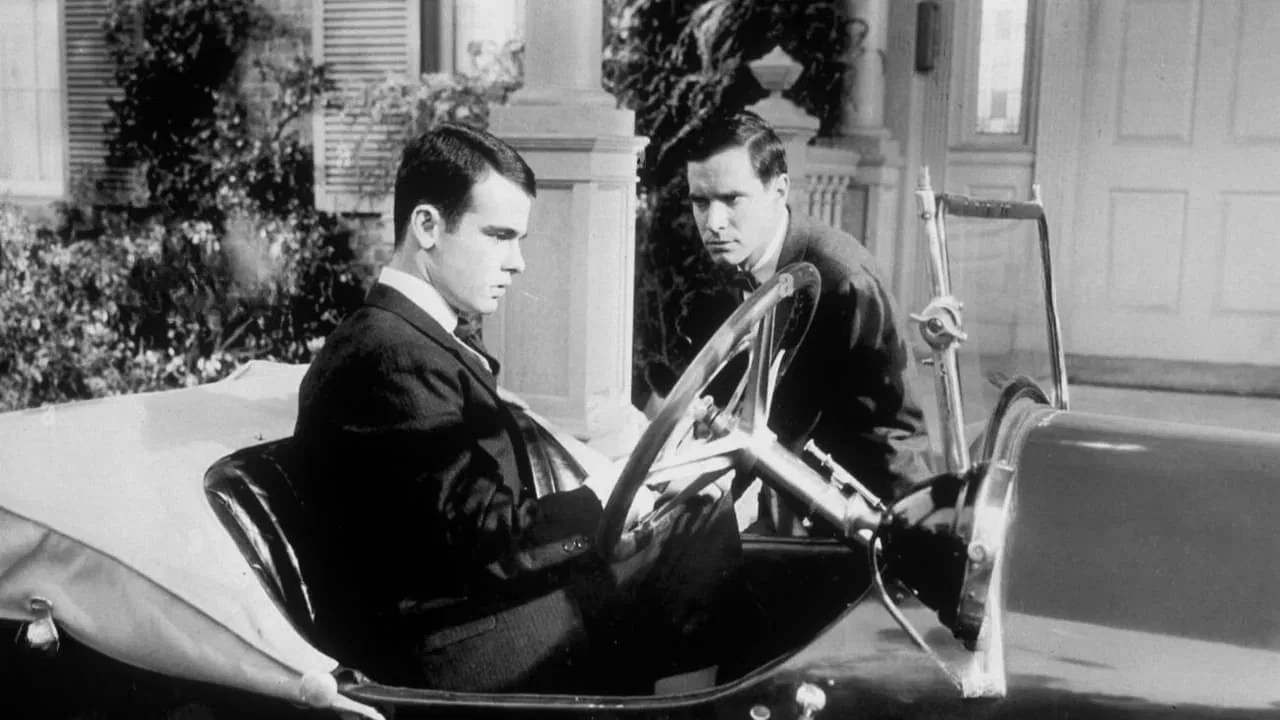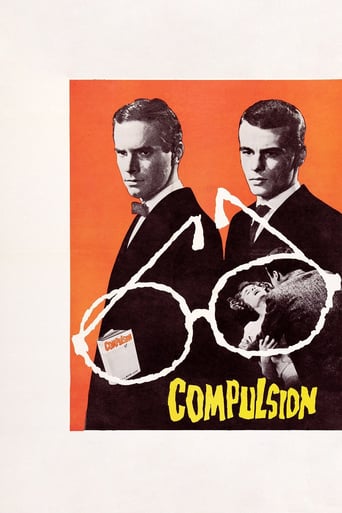

Clever and entertaining enough to recommend even to members of the 1%
... View MoreThis is one of the few movies I've ever seen where the whole audience broke into spontaneous, loud applause a third of the way in.
... View MoreThe movie's neither hopeful in contrived ways, nor hopeless in different contrived ways. Somehow it manages to be wonderful
... View MoreAll of these films share one commonality, that being a kind of emotional center that humanizes a cast of monsters.
... View MoreI don't know why I'm so attracted to this vulnerable weirdos. From Anthony Perkins as Norman Bates in Psycho to Colin Firth as Adrian Leduc in Apartment Zero, darkness and a fragility that is part of the unbearable suspense. Maybe I'm in need of professional attention but I don't think so. What attracts me is by the undeniable innocence behind the horror and that has a lot, if not everything, to do with the actors playing them. Look at Anthony Perkins in Psycho! 57 years ago and it still looks and feels kind of revolutionary or Colin Firth in Apartment Zero, the character is so unique and real that you can see it a thousand times and always find some new extra something, then Dean Stockwell in Compulsion. He plays a monster, a sick, pathetic prince of a man. Yes all of that. The humanity of the actor makes the monster human and we can't dismiss him, he doesn't allow us. Orson Welles has a great entrance into the film and E.G Marshall is superb as per usual, it is the rest of the cast who seem a bit dated, specially when sharing the frame with the extraordinary Dean Stockwell
... View MoreIt's 1924 Chicago. Rich law students Artie Strauss (Bradford Dillman) and Judd Steiner (Dean Stockwell) steal from their fraternity. Artie orders Judd to run over a drunk in the road. He misses. Artie wants to continue with his crime spree and Judd begs to join him in a well thought out dangerous plan to gain infamy. Judd is a bitter intellectual and Artie is a brash extrovert. They commit the 'perfect' crime killing a boy but their acquaintance rookie investigative reporter Sid Brooks finds Judd's glasses at the crime scene. Artie pushes Judd to attack Ruth Evans but he stops in time. Their crime unravels with the mounting evidence and the boys talking. Their families hire famed defense attorney Jonathan Wilk (Orson Welles) to battle D.A. Horn (E.G. Marshall).These two guys are compelling characters. At times, their obsessive relationship hints at homosexuality while other times, it is all intellectual psychopathic banter. They could have heightened the bloody violence a bit more. Orson Welles doesn't show up until after over an hour. He does an interesting performance but it is the young men that are the most fascinating.
... View MoreOrson Welles was known for pushing the envelope, and the movie Compulsion is no exception to this. Produced in the 1950s, the movie is the only representation made of the Leopold and Loeb case that correctly infers the relationship between the two protagonists was more than just friendly; in fact, Leopold and Loeb were gay lovers. It showed remarkable attention to detail as well, in that the dynamic between the two could have been written by an FBI criminal profiler whose expertise is in the pathology of sociopath pairings.Dean Stockwell does become the character the audience loves to hate - he drips of arrogance covered by a veneer of superficial charm. Dillman's character tends to be more pathetic in nature, but still not enough that the audience would see him as a "victim."E. G. Marshall is true to form as the district attorney intent on bringing these two to justice, and Orson Welles plays the atheistic and fairly cynical attorney hired to defend the pair. The touch of black humor in the end is when he states that if he believed in a God, he would say that Divine intervention was responsible for Sid Brooks finding the incriminating glasses (they had been partially buried in the sand) and for the police being able to trace them to Steiner.The movie is well worth viewing, especially for anyone who enjoys "true crime" stories - you'll get a charge comparing the real story to the way it is presented.
... View MoreYes, riveting...but not perfect. The reason I say "riveting" is because typically, when I'm watching movies at home, I watch for a while, then take a break, then watch again...in chunks. Not this time. I watched it all in one setting with no desire to push the pause button.That being said, it's not a perfect movie. Of course, we can't know what Clarence Darrow was actually like...how his delivery went...and so it's fair to criticize Orson Welles' performance. I didn't think he looked like himself, but the voice is unmistakable. Although we don't know how true to life his performance was, I somehow feel it may have been muted.The performance of Bradford Dillman was superb, and I saw that as a viewer who never liked Dillman. It seemed to me he portrayed a reasonable impression of how a young man like Leopold-Loeb may have thought to do what they did with such arrogance. Even better was the performance of Dean Stockwell, who certainly was not that little boy we so often loved on screen as a child. Although, I found Stockwell's voice a little annoying at times.The two supporting performances here that are noteworthy are those of E. G. Marshall (one of America's finest actors, but hardly a leading man) and -- surprisingly -- Martin Milner (of "Route 66" fame).But rather than the actors, what makes this film special is the pace of the action. As they say, never a dull moment. And that's what's riveting about it. Highly recommended, and it's inspired me to want to read more about the Leopold Loeb case.
... View More